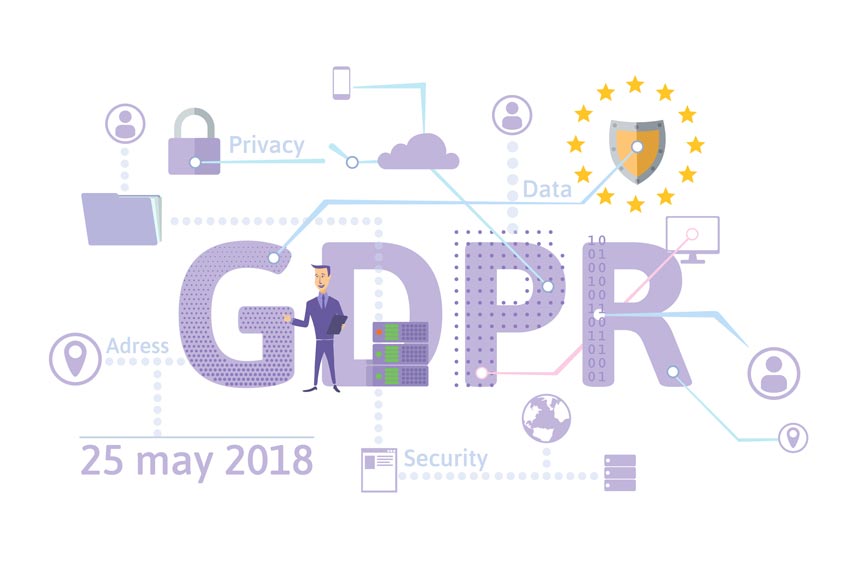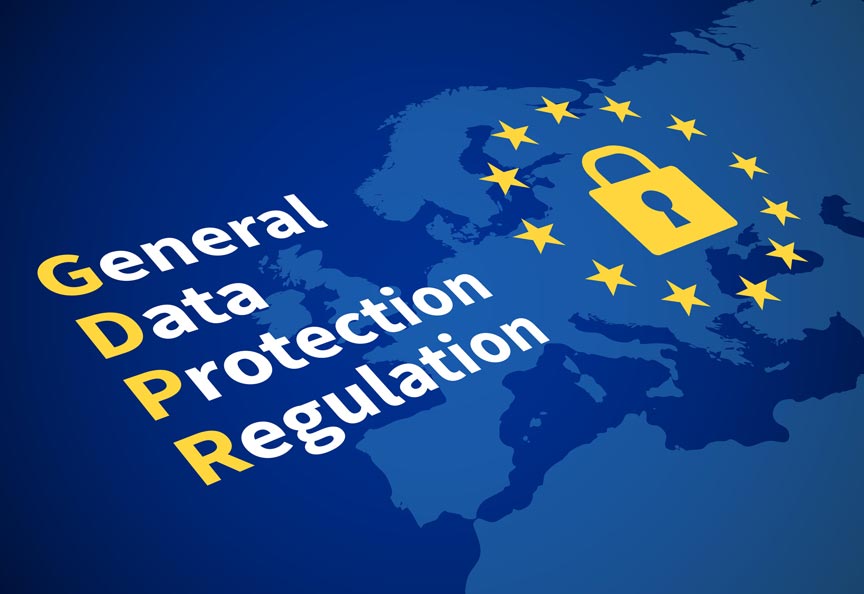 The European Union’s GDPR law goes into effect on May 25th, 2018 and right now everyone’s talking about GDPR compliance.
The European Union’s GDPR law goes into effect on May 25th, 2018 and right now everyone’s talking about GDPR compliance.
These new regulations target data protection and apply to any business that offers goods or services to EU customers.
So, how does this effect you?
What is GDPR?
GDPR stands for General Data Protection Regulation. It’s a data protection and privacy law protecting citizens of the European Union. It also addresses the export of personal data outside the EU. The reforms are designed to give EU citizens more control over their personal data through greater privacy and consent.
Unfortunately, it also means a lot of scrambling as we all try to figure out just who the law applies to, how it applies to them, and what needs to be done to achieve GDPR compliance. We’re all in the same boat.
What Does GDPR Effect?
 Pretty much any portion of your website that collects data on visitors falls under the GDPR regulations: your Google Analytics, booking engine, contact forms, newsletter sign-ups, etcetera.
Pretty much any portion of your website that collects data on visitors falls under the GDPR regulations: your Google Analytics, booking engine, contact forms, newsletter sign-ups, etcetera.
While many of the companies that provide these tools are currently working to make them compliant, that doesn’t take you off the hook. It is up to each, individual business owner to make sure that their site is GDPR compliant.
What Can I Do About My Site’s GDPR Compliance?
GDPR Compliance Quick Start Guide
1. Watch the GDPR Compliance Webinar: http://www.paii.com/Public-Webinars.
2. Find out what collects visitor data on your website and if these tools are GDPR compliant.
3. If you have any questions about non-compliant data collection occurring on your site, consult an attorney.
The very first step is to educate yourself about the new regulations as they apply to you.
A GDPR Compliance webinar, recently presented by Lisa Kolb of Acorn Marketing, is an excellent place to start. The webinar provides a good overview of our industry’s current understanding of the GDPR regulations. The webinar was put together with the support of PAII, AIHP, White Stone Marketing, and InsideOut Solutions and can be found on the AIHP website.
 Next, figure out which parts of your site are collecting data on visitors and find out if they are GDPR compliant. The PAII website currently has a list of the tracking software most commonly used by our industry and whether it is GDPR compliant. This list is continually changing.
Next, figure out which parts of your site are collecting data on visitors and find out if they are GDPR compliant. The PAII website currently has a list of the tracking software most commonly used by our industry and whether it is GDPR compliant. This list is continually changing.
If you need help figuring out what parts of your site are collecting visitor data, hire your webmaster/site designer to take a look. They should be able to detail your site’s data collecting items and who you need to contact about them.
Other things your webmaster should consider doing for your site is to turn on IP anonymization. They can also add opt out buttons to your forms. You may also need them to post your privacy policies, once you have them.
InsideOut Solutions is more than happy to help at our regular, hourly rate (you can request help here) – but don’t expect legal advice! If it appears your site may have GDPR compliance issues, you’ll need to contact an attorney. Your webmaster/web designer is not a lawyer.
It is possible these GDPR compliance issues will all blow over, that the little guy wont be fined – but we don’t know that for sure. With the amount of fines they are talking about, it’s better to be safe than sorry.
Start with the items on our GDPR Compliance Quick Start Guide above, and remember: we’re all in this together.
